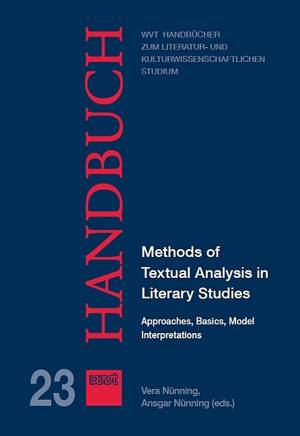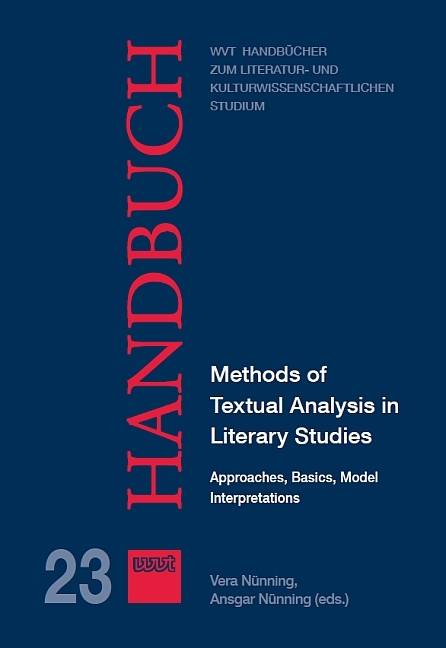
Door een staking bij bpost kan je online bestelling op dit moment iets langer onderweg zijn dan voorzien. Dringend iets nodig? Onze winkels ontvangen jou met open armen!
- Afhalen na 1 uur in een winkel met voorraad
- Gratis thuislevering in België vanaf € 30
- Ruim aanbod met 7 miljoen producten
Door een staking bij bpost kan je online bestelling op dit moment iets langer onderweg zijn dan voorzien. Dringend iets nodig? Onze winkels ontvangen jou met open armen!
- Afhalen na 1 uur in een winkel met voorraad
- Gratis thuislevering in België vanaf € 30
- Ruim aanbod met 7 miljoen producten
Zoeken
Methods of Textual Analysis in Literary Studies
Approaches, Basics, Model Interpretations
€ 34,45
+ 68 punten
Omschrijving
Why a handbook on methods? Choosing and using methods wisely is one of the key prerequisites for textual analysis and the interpretation of literary works. Despite the importance and indispensability of methods, there are only few books and articles that provide an introduction to methods of literary analysis. The three concepts in the subtitle - approaches, basics, and model interpretations - indicate the content of the chapters in this volume. This handbook presents a broad range of current approaches for analyzing and interpreting literary texts (such as hermeneutics, gender and queer studies, postcolonial criticism, close and wide reading, the new historicism, cognitive poetics), delineating and explaining their respective methods. The chapters include model interpretations of selected British and American literary texts in order to provide paradigm examples of how to turn the theoretical approaches and their preferred methods into actual practice of textual analysis.
Specificaties
Betrokkenen
- Uitgeverij:
Inhoud
- Aantal bladzijden:
- 306
- Taal:
- Engels
- Reeks:
- Reeksnummer:
- nr. 23
Eigenschappen
- Productcode (EAN):
- 9783868218848
- Verschijningsdatum:
- 15/01/2021
- Uitvoering:
- Paperback
- Afmetingen:
- 157 mm x 16 mm
- Gewicht:
- 545 g

Alleen bij Standaard Boekhandel
+ 68 punten op je klantenkaart van Standaard Boekhandel
Beoordelingen
We publiceren alleen reviews die voldoen aan de voorwaarden voor reviews. Bekijk onze voorwaarden voor reviews.










